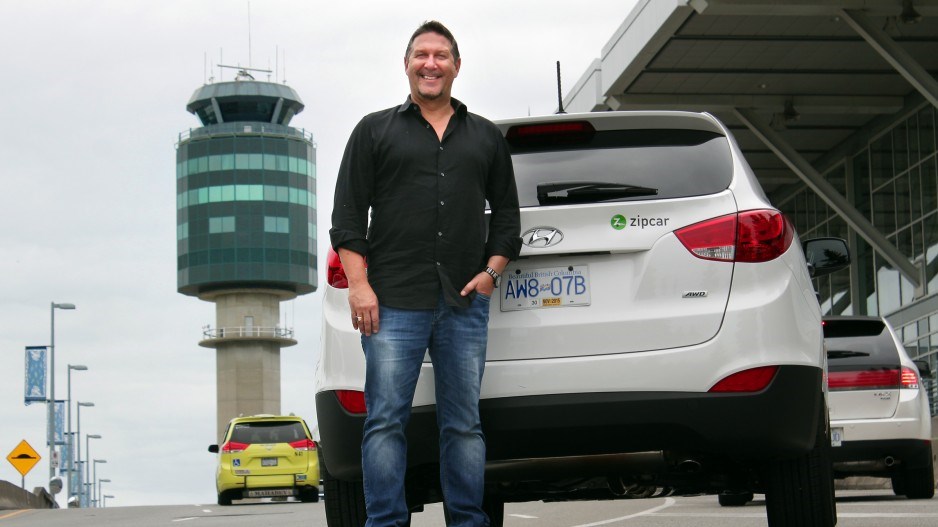Competition is shifting into overdrive in Vancouver’s car-share sector as a fourth contender rolls into the market, another expands through a merger and several start service on Sea Island near Vancouver International Airport (YVR).
Evo is the newest entrant in the battle for car-share drivers. British Columbia Automobile Association (BCAA) launched Evo in March and immediately placed 250 vehicles on Vancouver streets. Most of Evo’s vehicles are downtown, but it has three designated parking spaces where members can leave cars at Sea Island’s Park’N Fly outlet. Its drivers then take a free shuttle bus to the airport.
Evo’s launch came three months after Car2Go placed five designated parking spots for its 750 Vancouver vehicles at the Pacific Gateway Hotel on Sea Island. Its customers also take a free shuttle bus to the airport.
In June, Zipcar installed two designated parking spots at the Avis rental car lot at the lower level of YVR’s main parkade.
“We wanted to see car sharing at YVR,” said Susan Stiene, who is director of commercial services at the Vancouver Airport Authority.
She told Business in Vancouver that the airport issued two requests for proposals (RFPs) last year urging car-share companies to bid to operate either on airport land or on land near the airport.
Stiene said any partnership to provide transportation to travellers on Sea Island must get YVR approval regardless of whether YVR-leased land is involved.
It is now too late for car-share companies to bid to have parking spots through a partnership on YVR land but Vancouver’s other car-share company, Modo, remains eligible to bid to operate on Sea Island outside of the airport, Stiene said.
That’s unlikely, Modo’s business development manager, Sylvain Celaire told BIV.
He explained that Modo is not interested in having designated parking spaces near YVR because most of its 13,000 members live in Metro Vancouver.
Modo expanded its membership base to Vancouver Island in April when it merged with Victoria Car Share. It now has 24 vehicles on Vancouver Island and 381 vehicles in Metro Vancouver.
The fact that most of Modo’s members are based in Vancouver is important because, unlike Evo and Car2Go, which enable drivers to pick up and leave a vehicle at different designated parking spots or within a zone, Modo members must pick up and return their vehicle to the same designated parking spot.
This so-called two-way model has the advantage of enabling a member to reserve a vehicle days in advance – Car2Go and Evo only allow reservations half an hour in advance – but it can be inconvenient for people who do not want to return to their starting point.
Vancouverites, for example, are unlikely to want to start a journey at the airport and also return to the airport to drop off their car, Celaire said.
Zipcar operates under the same two-way model as Modo and it requires all of its Vancouver members to pick up and leave vehicles at the same parking spot.
Operating at YVR makes sense for Zipcar, however, because the Avis Budget Group-owned (Nasdaq:CAR) company has more than 900,000 members worldwide who can share any of the 10,000 vehicles in its global fleet. The company has vehicles at more than 50 airports, most of which in North America, with the intent of enticing travellers who have long layovers and want to quickly take a car for a ride in a new city.
Car2Go is following a similar strategy of targeting air travellers. It has vehicles at airports in five of the 14 metro areas in which it operates.
“We have more than 200 vehicles in Metro Vancouver for the first time this year,” said Zipcar’s Vancouver general manager Mark Pribula.
“Our local members have told us that it would be great to have some of those cars at the airport for when they travel.”




